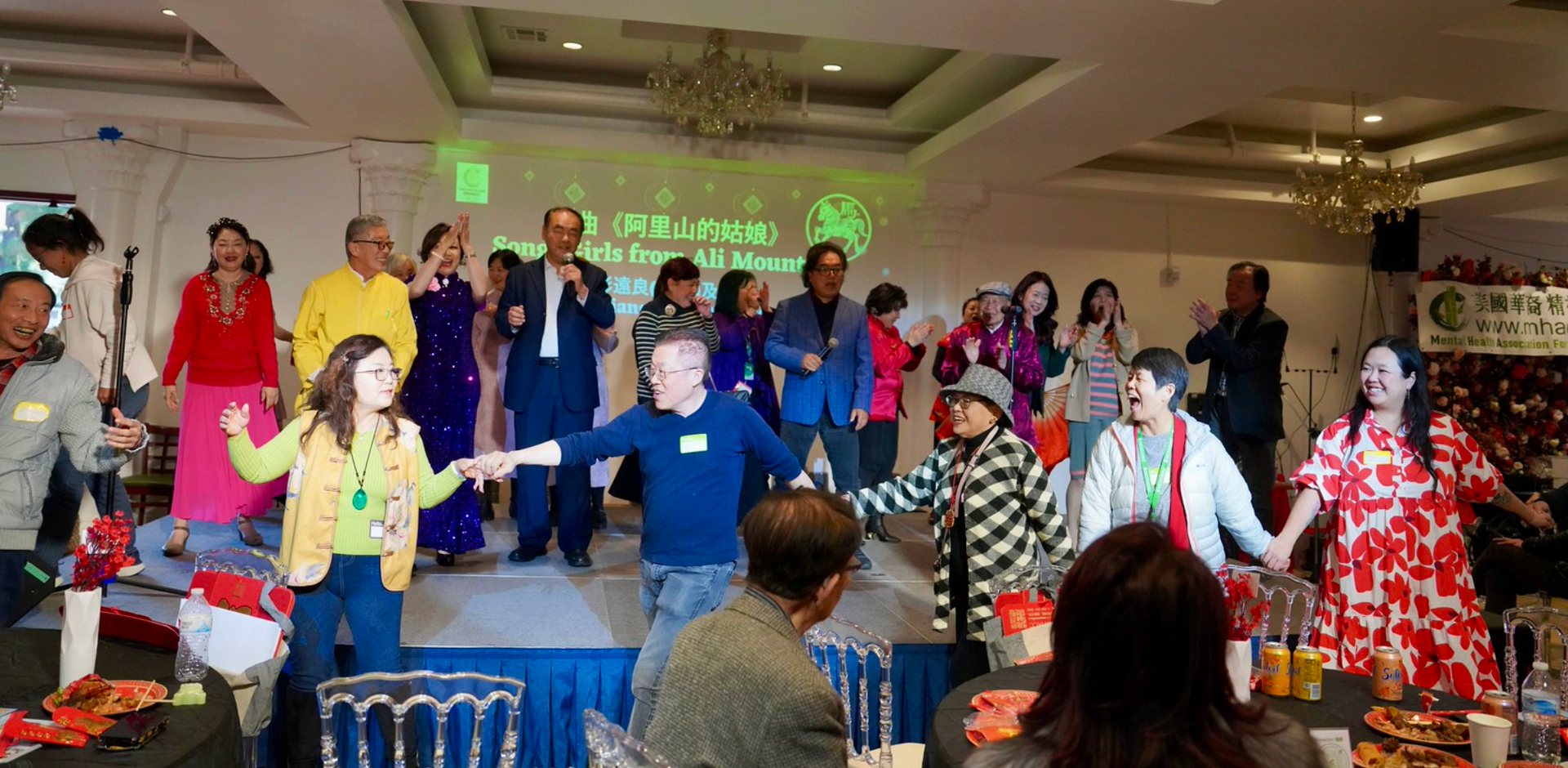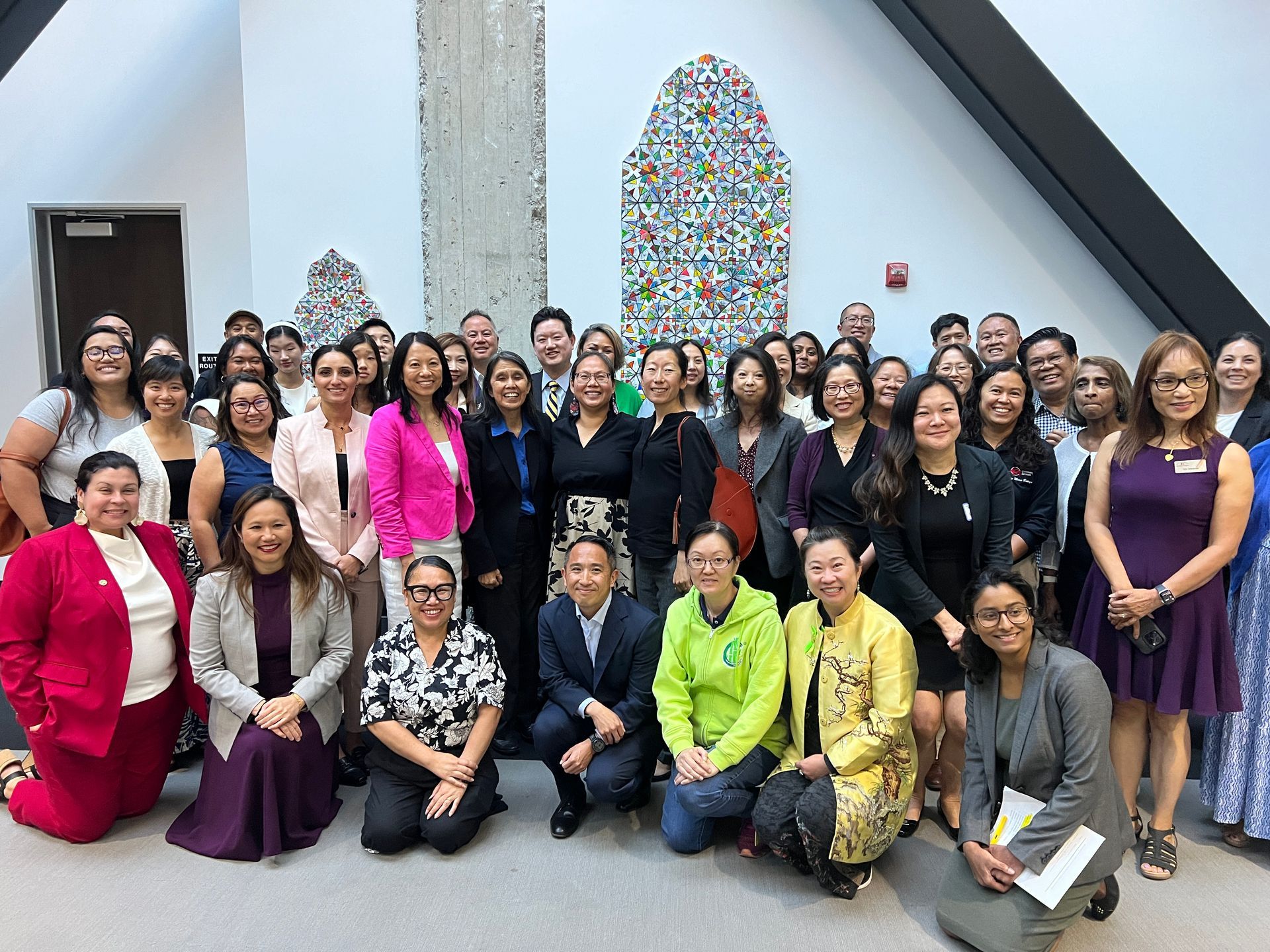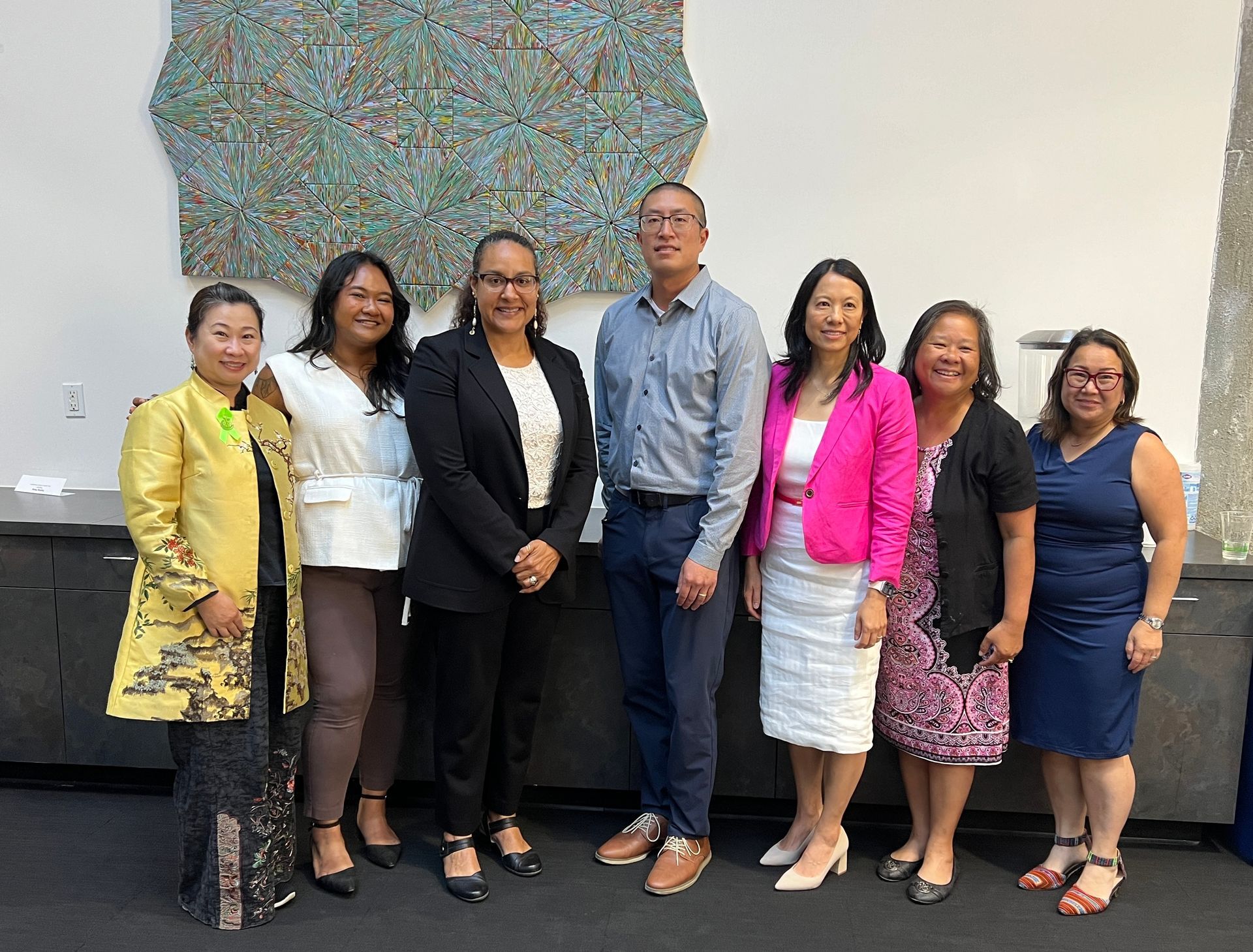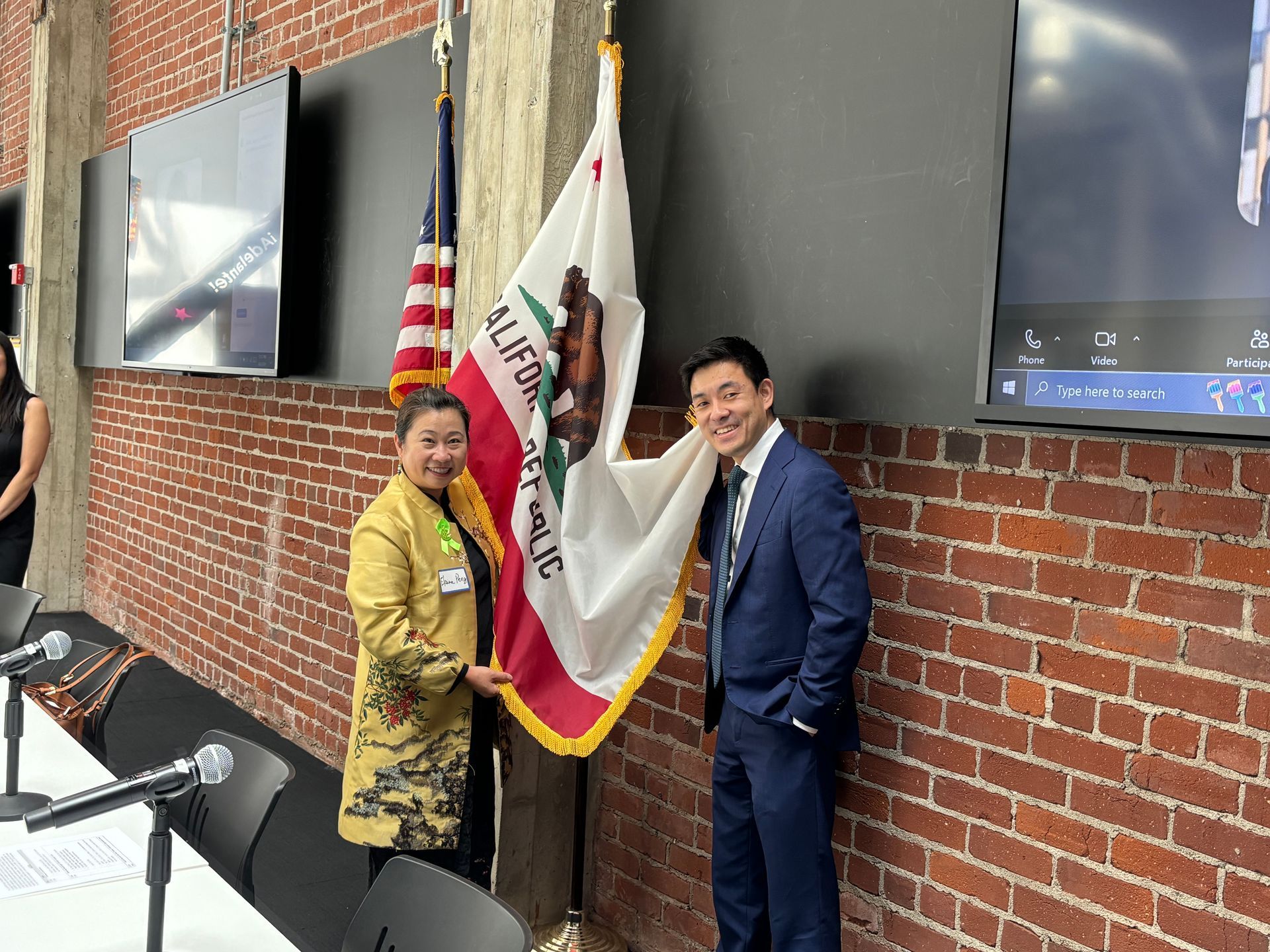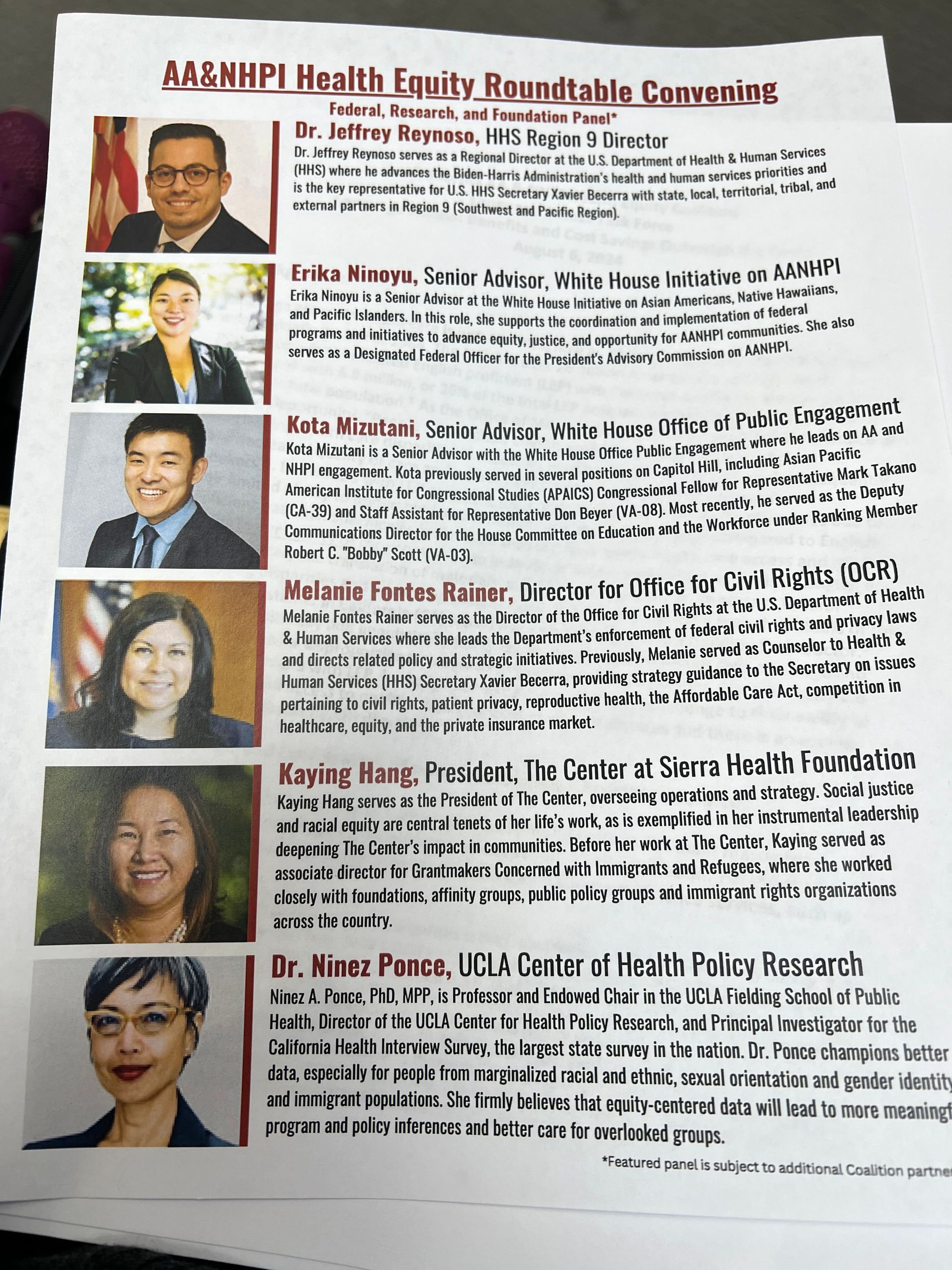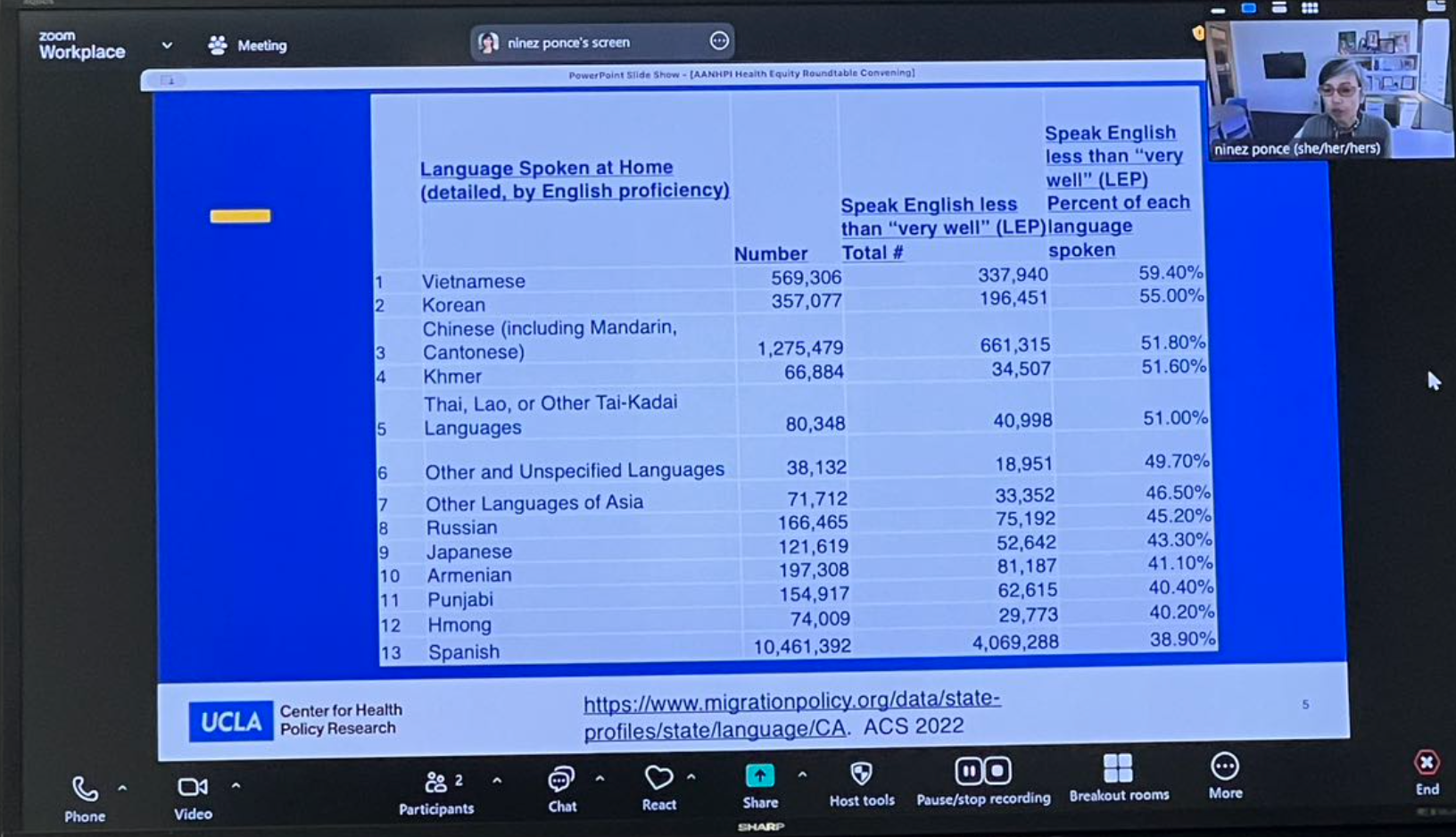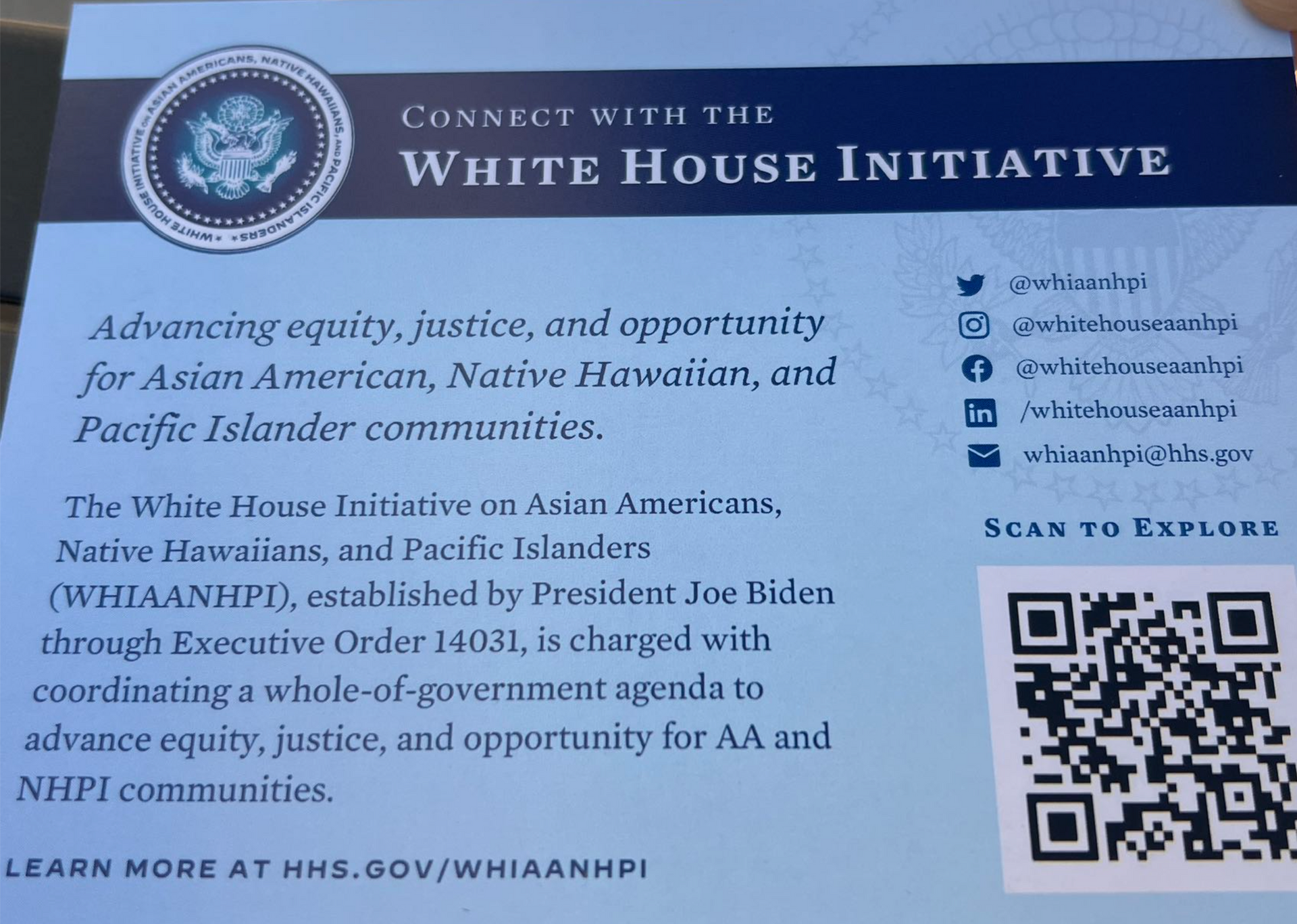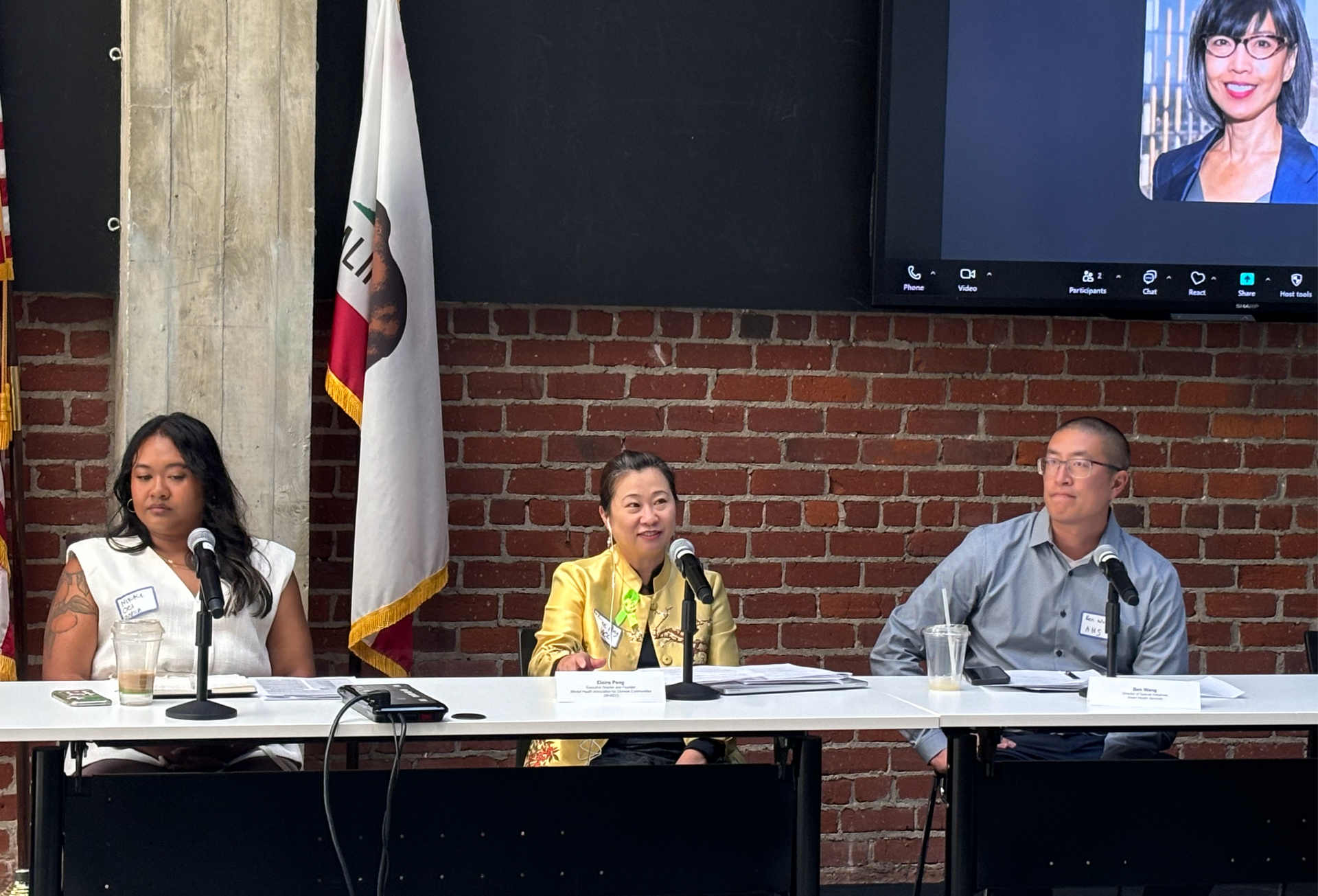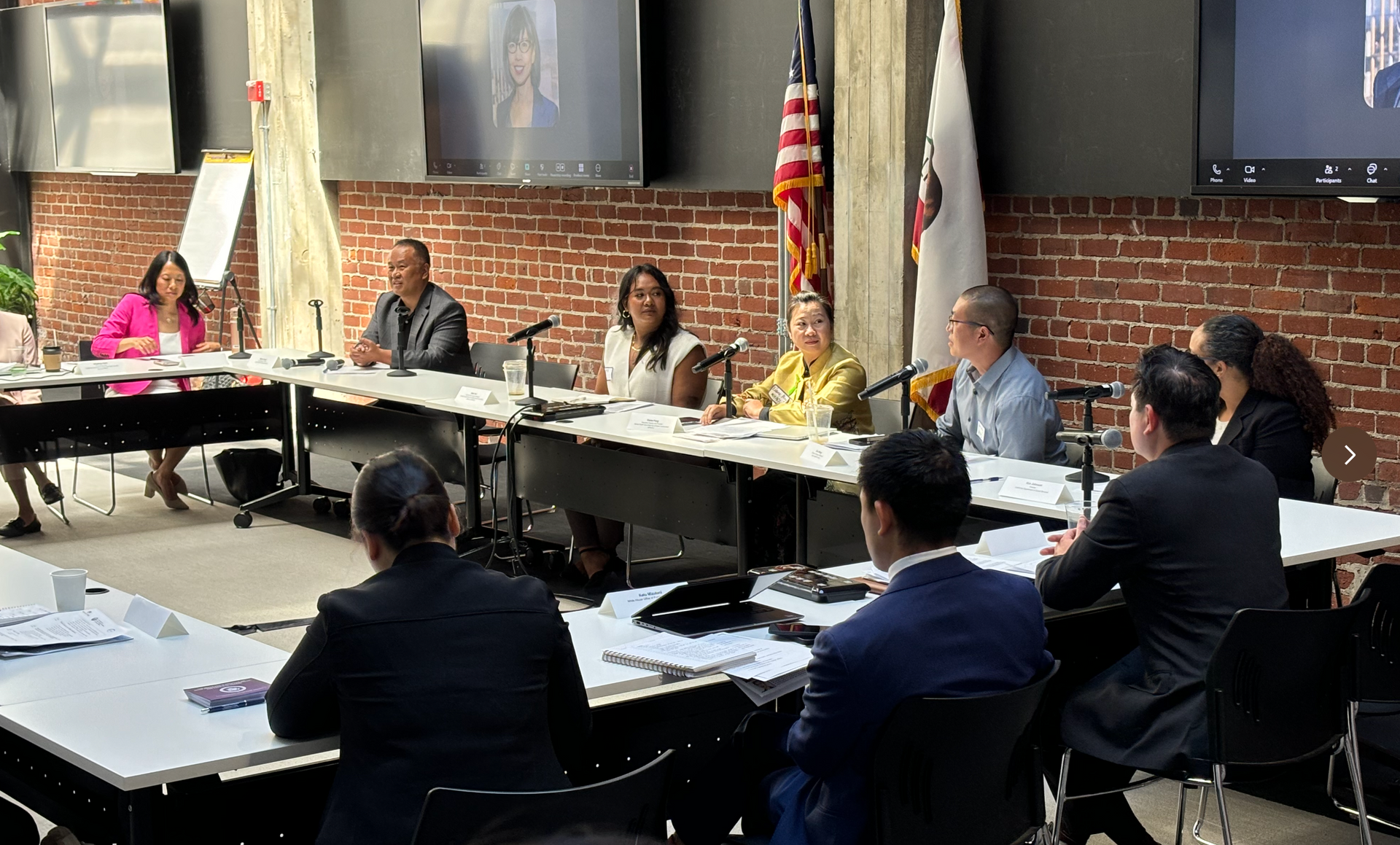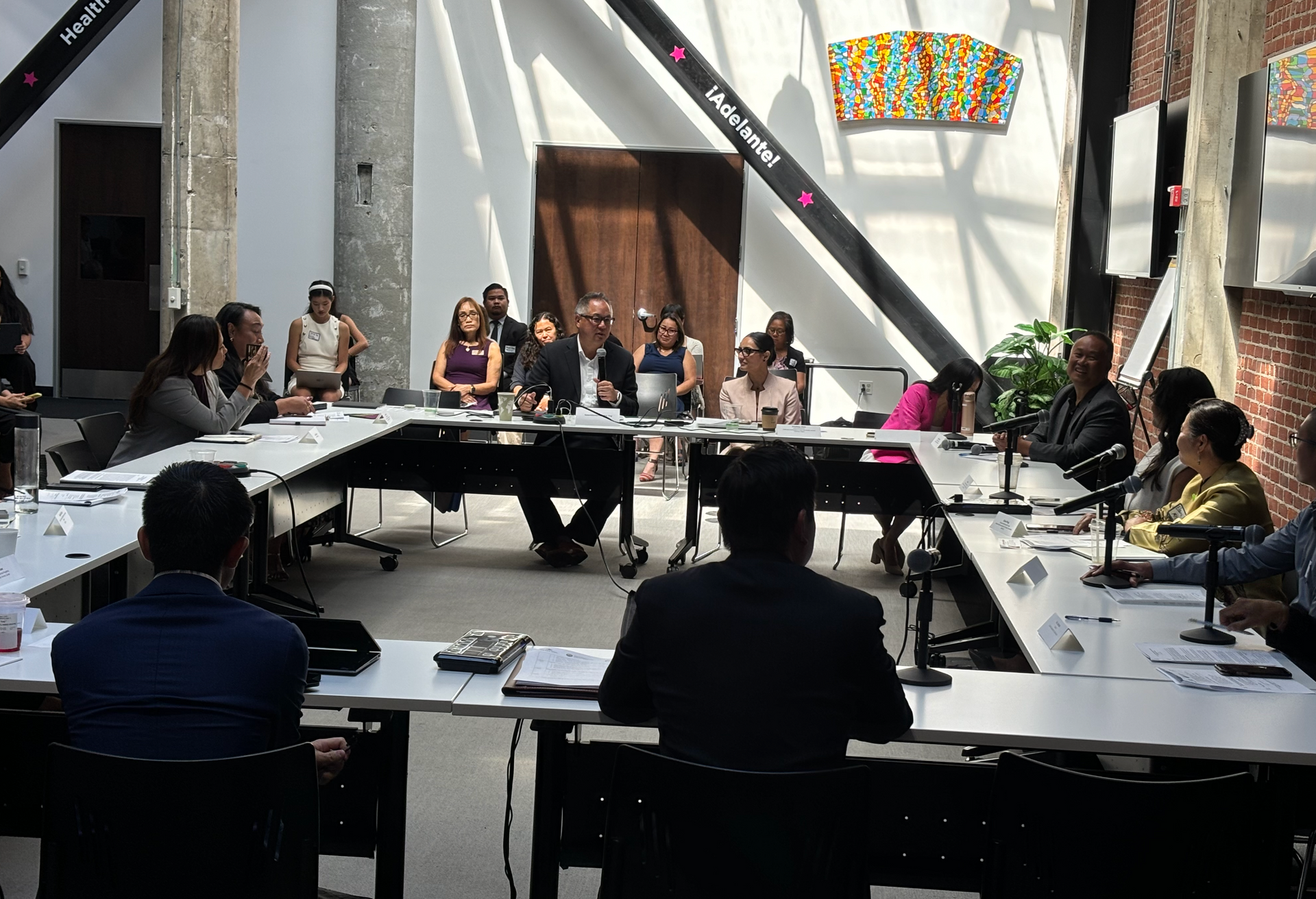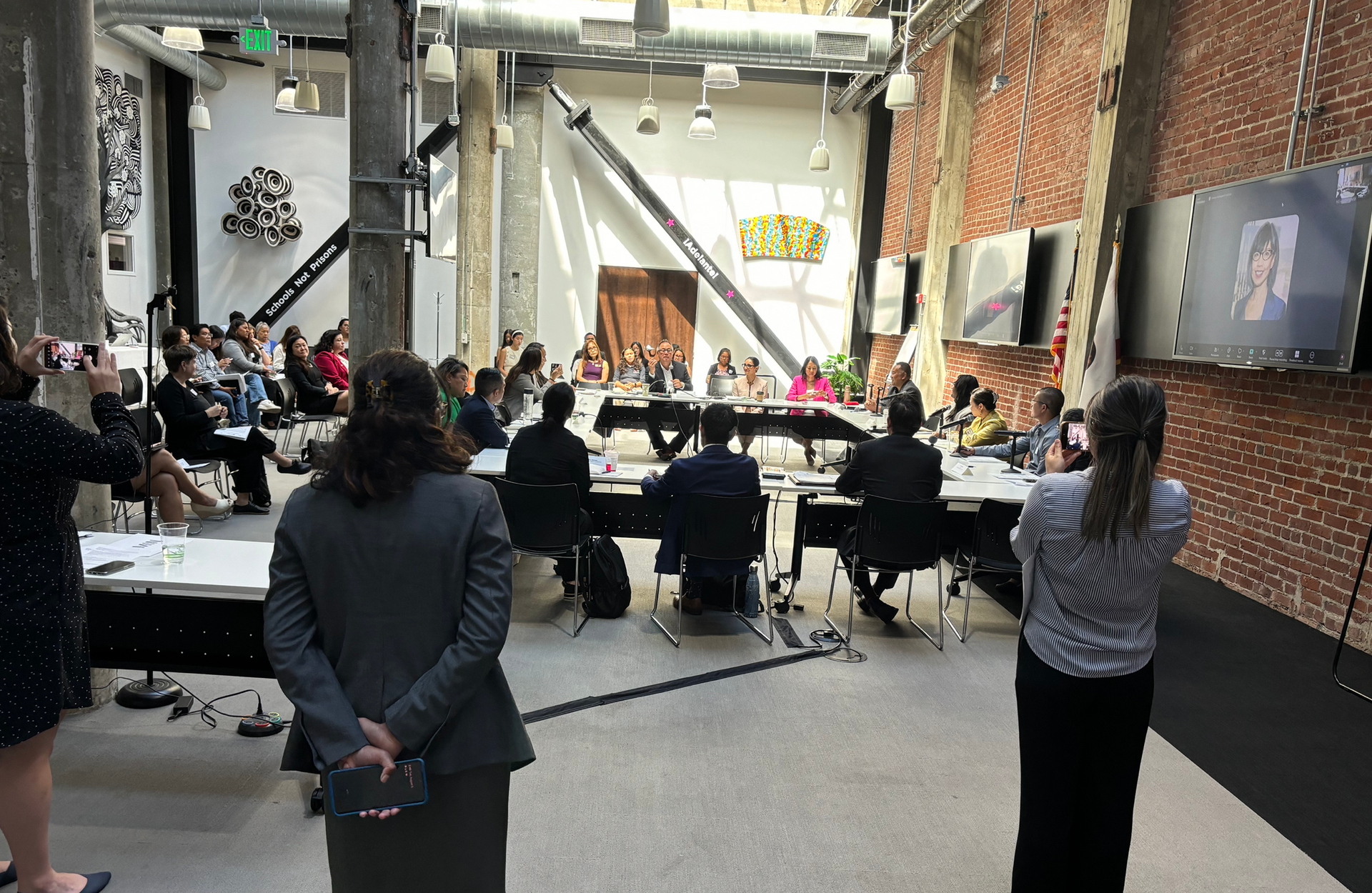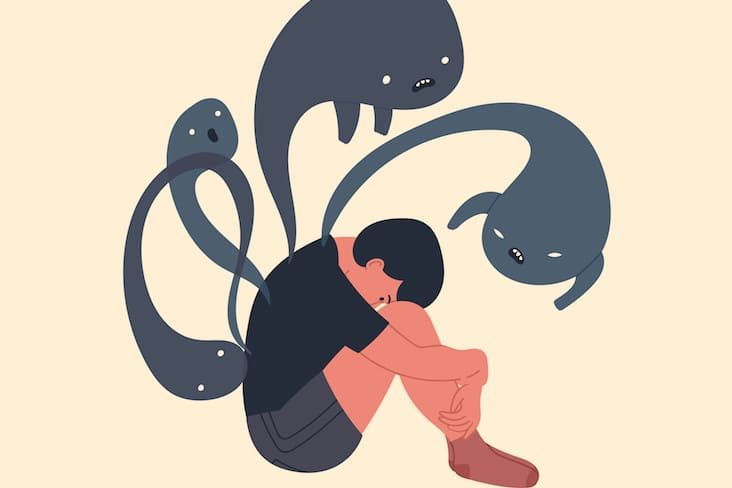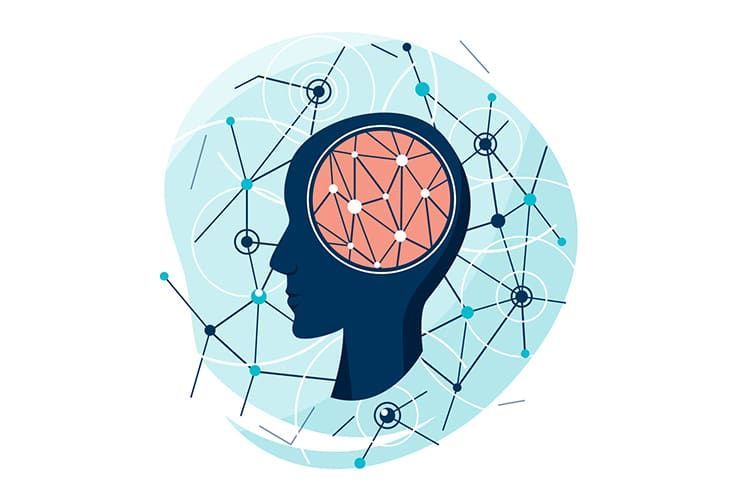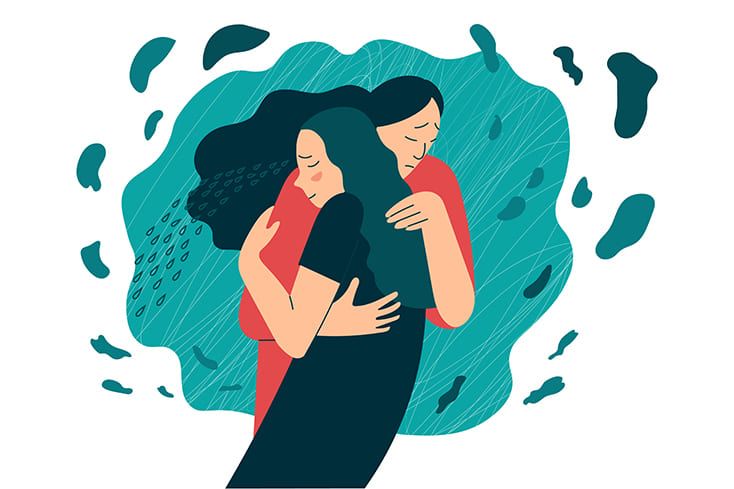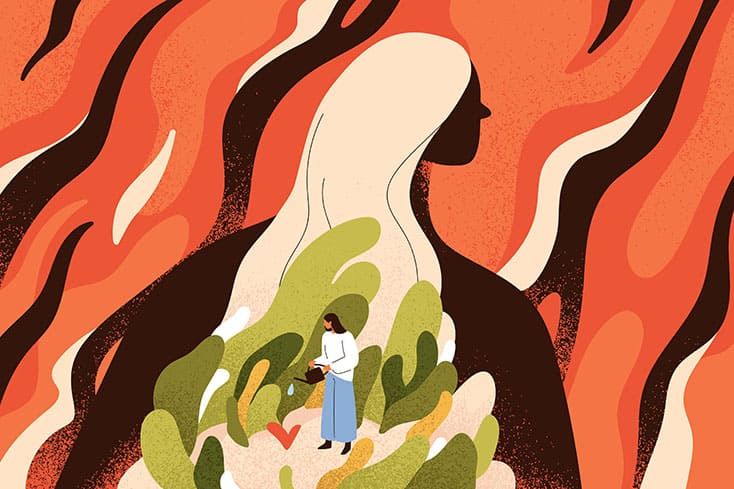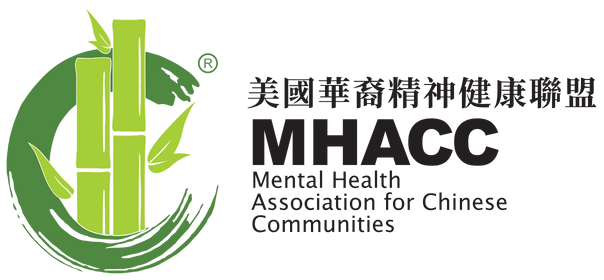共創精神健康平等MHACC參加加州亞太裔健康圓桌會議 | MHACC Joins in California AANHPI Health Equity Roundtable
MHACC 雙語部落格快訊 |Bilingual Blog Flash News
Scroll down for an English version
8月6日,執行長彭一玲女士代表美國華裔精神健康聯盟(MHACC)參加了在薩克拉門托舉行的加州亞裔美國人與夏威夷原住民/太平洋島民(AA NHPI)健康公平圓桌會議。這次會議匯聚了聯邦、州和地方領導人,以及社區組織代表,共同探討亞太裔社區面臨的三大挑戰:語言障礙、精神健康問題和反亞裔暴力。
會議重點:
- 語言可及性:新的聯邦法規要求醫療機構為英語能力有限的人士提供語言協助。與會者討論了如何在加州有效落實這些政策。
- 精神健康:探討了文化敏感的精神健康服務的重要性,以及如何增加亞太裔社區獲得這些服務的機會。
- 反亞裔暴力:討論了COVID-19期間反亞裔仇恨犯罪激增對社區造成的影響,以及應對策略。
彭一玲女士在會上發言時強調了MHACC在這些領域的工作:
"反亞裔仇恨犯罪的增加導致了嚴重的精神健康問題。語言障礙和文化污名使許多受害者沉默無助。通過'遏止仇恨'項目的資助,MHACC得以填補關鍵服務空白:
- 擴大支持小組:為受害者提供母語交流和療癒的安全空間
- 面對面支持:在高風險地區設立四個辦公室和危機干預團隊
- 社區外展:每年接觸2萬人
- 開發AI驅動的免費手機應用程式,為仇恨事件受害者隨時隨地提供精神健康資源和支持"
彭女士還指出了一些持續的挑戰,如社交媒體上的錯誤信息傳播、政策誤解等,並呼籲加強非營利組織與決策者之間的溝通,以便在緊急情況下獲得及時的資金和支持。
其他重要發言人也分享了寶貴見解:
- 亞洲健康服務首席執行官Julia Liou指出:"語言可及性是確保獲得優質醫療保健的首要因素,但我們的社區仍然面臨著以自己的語言獲取重要服務的障礙。"
- 加州參議員Dave Min強調:"語言可及性對我們多元社區的整體健康和福祉至關重要。"
- 美國衛生與公眾服務部第9區主任Jeffrey Reynoso博士表示:"語言可及性是我們所有掌權者為有效服務社區而承擔的責任。我們必須承擔起自己的角色,確保最弱勢的社區成員獲得應得的機會,並必須在公共和私營部門通力合作以實現這一目標。"
出席會議的重要領導包括:
聯邦政府代表:
- Kota Mizutani,白宮公眾參與辦公室
- Erika Niniyou,白宮亞太裔倡議
- Melanie Fontes Rainer,美國衛生與公眾服務部民權辦公室主任
- Dr. Jeffrey Reynoso,衛生與公眾服務部第9區主任
州政府與立法代表:
- 加州參議員David Min
- 加州眾議員Phil Ting
- 加州眾議員Evan Low
- 加州眾議員Stephanie Nguyen
- Pam Chueh,加州政府運營局州首席公平官
- Dan Torres,加州健康與公眾服務局首席公平官
- Maureen Keffer,加州健康與公眾服務局助理公平官
學術界代表:
- Dr. Ninez Ponce,加州大學洛杉磯分校健康政策研究中心主任
社區與基金會代表:
- Kaying Hang,Sierra Health基金會主席
- David Yee委員,加州亞太島民事務委員會
- Rajan Gill委員,加州亞太島民事務委員會
此外,多個社區組織的代表也積極參與了此次會議,共同為亞太裔社區的健康平等獻計獻策。
這次會議為我們提供了寶貴的機會,與各界領袖分享經驗、探討解決方案。MHACC將繼續致力於為我們的社區提供文化敏感的精神健康服務,幫助受害者康復,培養社區韌性。我們深信,通過持續的努力和跨部門合作,我們可以建立一個更強大、更團結的華裔美國社區,共同抵制仇恨和歧視,促進健康平等。
On August 6th, our Executive Director Elaine Peng represented the Mental Health Association for Chinese Communities (MHACC) at the California Asian American and Native Hawaiian/Pacific Islander (AA & NHPI) Health Equity Roundtable in Sacramento. The meeting brought together federal, state, and local leaders, as well as community organization representatives, to address three major challenges facing the AA & NHPI community: language barriers, mental health issues, and anti-Asian violence.
Key Points of the Meeting:
- Language Access: New federal regulations require healthcare institutions to provide language assistance for those with limited English proficiency. Participants discussed how to effectively implement these policies in California.
- Mental Health: The importance of culturally sensitive mental health services was explored, along with ways to increase access to these services for the AA & NHPI community.
- Anti-Asian Violence: The impact of increased anti-Asian hate crimes during COVID-19 and strategies to address this issue were discussed.
Elaine Peng highlighted MHACC's work in her speech:
"The rise in anti-Asian hate crimes has led to significant mental health issues. Language barriers and cultural stigma have left many victims silent and without resources. Through the 'Stop the Hate' program funding, MHACC has been able to fill critical service gaps:
- Expanded Support Groups: Providing safe spaces for victims to connect and heal in their native language
- In-Person Support: Establishing four offices and crisis intervention teams in high-risk areas
- Community Outreach: Reaching 20,000 people annually
- Developing AI-powered free mobile apps offering mental health resources and support for hate incident victims anytime, anywhere"
Ms. Peng also pointed out ongoing challenges such as misinformation spread on social media and policy misconceptions, calling for stronger communication between nonprofits and policymakers to ensure timely funding and support in emergencies.
Other key speakers shared valuable insights:
- Julia Liou, CEO of Asian Health Services, stated: "Language access is a top factor in ensuring meaningful access to quality health care, yet our communities continue to face barriers accessing critical services in their language."
- California Senator Dave Min emphasized: "Language access is paramount to the overall health and wellness of our diverse communities."
- Dr. Jeffrey Reynoso, HHS Region 9 Director, noted: "Language access is a responsibility that all of us in positions of power hold to serve our communities effectively. We must own our role in ensuring that our most underserved community members have the opportunities they deserve and must work together across the public and private sectors to do so."
Key attendees included:
Federal Government Representatives:
- Kota Mizutani, White House Office of Public Engagement
- Erika Niniyou, White House Initiative on AANHPIs
- Melanie Fontes Rainer, Director, Office of Civil Rights, U.S. Department of Health & Human Services
- Dr. Jeffrey Reynoso, Health and Human Services Region 9 Director
State Government and Legislative Representatives:
- Senator David Min
- Assemblymember Phil Ting
- Assemblymember Evan Low
- Assemblymember Stephanie Nguyen
- Pam Chueh, State Chief Equity Officer, Cal Government Operations Agency
- Dan Torres, Chief Equity Officer, California Health and Human Services Agency
- Maureen Keffer, Assistant Equity Officer, California Health and Human Services Agency
Academic Representative:
- Dr. Ninez Ponce, Director, UCLA Center for Health Policy Research
Community and Foundation Representatives:
- Kaying Hang, President, Sierra Health Foundation
- Commissioner David Yee, CA Commission on APIA Affairs
- Commissioner Rajan Gill, CA Commission on APIA Affairs
Additionally, representatives from various community-based organizations actively participated in the meeting, contributing to strategies for health equity in the AA & NHPI community.
This meeting provided a valuable opportunity to share experiences and explore solutions with leaders from various sectors. MHACC will continue its commitment to providing culturally sensitive mental health services to our community, helping victims recover, and fostering community resilience. We firmly believe that through ongoing efforts and cross-sector collaboration, we can build a stronger, more united Chinese American community that stands against hate and discrimination and promotes health equity.
Sign up for our Newsletter
to get the latest updates
訂閱每月簡訊獲得最新資訊
Contact Us
